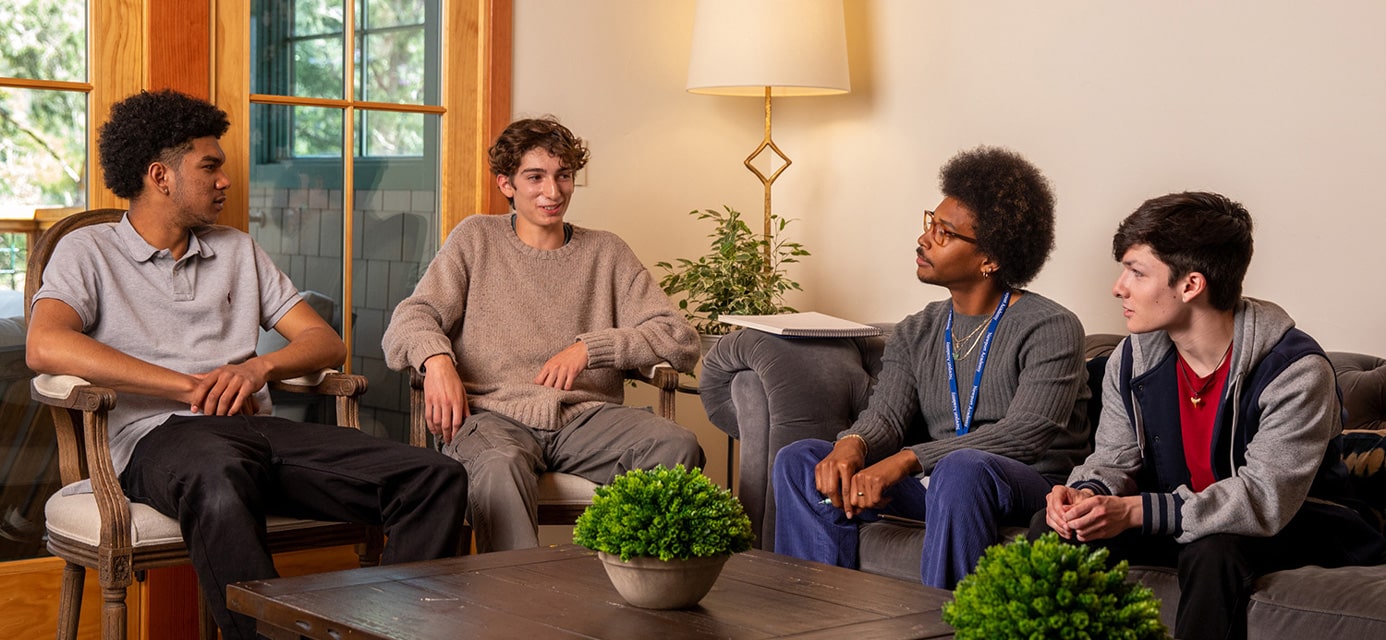How Teen Treatment Can Encourage Young Minds and Promote Development
Young adult therapy plays an important role in shaping the psychological well-being of teens. It resolves the special obstacles they encounter, cultivating emotional recognition and strength. By exploring different healing methods, young people can establish vital coping techniques. This process not only aids in personal development yet likewise enhances their ability to browse relationships. Understanding the characteristics of this therapeutic journey reveals much deeper insights right into just how it can essentially alter their course toward their adult years.
Understanding the Relevance of Mental Health in Teenagers
Why is psychological health crucial for teenagers throughout their developmental years? This period is marked by fast physical, emotional, and cognitive changes. Teenagers commonly browse complex social dynamics, scholastic pressures, and the quest for identity, making mental health an important component of their total health. Healthy and balanced mindsets permit young adults to create strength, cultivate self-esteem, and manage stress and anxiety efficiently. Furthermore, attending to psychological health problems early can protect against lasting mental complications, enabling teens to grow academically and socially.
Recognizing psychological health and wellness in young adults includes recognizing the distinct obstacles they encounter. Recognition and support can cultivate open interaction, enabling young individuals to reveal their sensations and seek aid when required. By prioritizing psychological health, culture can equip young adults to develop coping strategies, form healthy connections, and achieve their complete possibility. Eventually, supporting mental wellness during these formative years lays the foundation for a balanced, meeting adulthood.
Common Challenges Dealt With by Teens
Adolescents often encounter different difficulties that can dramatically affect their psychological wellness. Emotional law struggles, peer stress dynamics, and scholastic stress and anxiety administration are typical concerns that shape their experiences. Dealing with these challenges is vital for fostering resilience and empowerment in young adults.
Psychological Policy Struggles
Lots of teens experience significant emotional policy has a hard time as they navigate the intricacies of adolescence. This developing phase is noted by varying emotions, commonly resulting in difficulty taking care of sensations such as anger, anxiousness, and despair. Youthful individuals might discover themselves overwhelmed by their psychological responses, causing spontaneous behavior or withdrawal. Aspects such as hormonal changes, social stress, and scholastic difficulties intensify these battles. Several teenagers lack the coping techniques needed to reveal their feelings appropriately, which can result in conflicts in relationships and prevent personal growth. In addition, feelings of seclusion might develop, as they frequently believe their experiences are special. Identifying and attending to these emotional regulation issues via therapy can encourage teens to create much healthier coping devices and foster resilience.
Peer Stress Characteristics
Browsing the psychological disturbance of teenage years commonly brings teenagers in person with peer pressure dynamics. This powerful influence can substantially shape their choices, behaviors, and self-image. Teenagers might feel obliged to satisfy their peers' expectations, bring about dangerous habits, such as substance usage or undesirable partnerships. The wish for approval and worry of rejection increase these stress, commonly causing interior problem. Young adults might struggle to insist their uniqueness, fearing backlash from their colleagues. Therapy can offer a risk-free room for young individuals to discover these dynamics, enabling them to establish techniques for withstanding negative influences (therapist for teens near me). Via empowerment and self-awareness, teens can find out to browse peer stress a lot more properly, cultivating durability and advertising healthier decision-making

Academic Tension Monitoring
Just how do academic pressures impact the well-being of teens? For lots of teens, the pursuit of high qualities and university preparedness usually leads to overwhelming stress and anxiety. This stress manifests in various means, consisting of anxiousness, clinical depression, and physical health and wellness problems. The anxiety of failing and the ruthless competition can create a toxic setting that impedes psychological and social advancement. Additionally, impractical expectations from moms and dads and instructors can intensify sensations of insufficiency. Teenagers might have a hard time to balance academics with after-school activities, additionally increasing their tension levels. Reliable scholastic tension management methods, such as time management, leisure methods, and looking for assistance, end up being important. By addressing these obstacles, therapy can equip teens to develop much healthier coping mechanisms, cultivating durability and promoting general health.
The Role of Treatment in Teenage Growth
As teenagers transition with the complexities of teen years, treatment emerges as a crucial assistance system, promoting emotional durability and personal growth. Throughout this developmental period, teenagers grapple with identification, peer pressure, and psychological upheaval. Therapy provides a risk-free room for them to explore their feelings, ideas, and behaviors without judgment. This exploration boosts their self-awareness, allowing them to recognize their feelings and reactions much more deeply.
Moreover, therapy assists adolescents create dealing techniques to take care of stress and anxiety, necessary abilities that will benefit them throughout life. By participating in healing discussions, young adults discover to verbalize their requirements and develop healthier connections. This process not only promotes individual growth however likewise adds to better interaction and problem resolution abilities. Eventually, therapy offers as a vital device in leading teens toward positive growth, equipping them to navigate the obstacles of teenage years with self-confidence and durability
Techniques Made Use Of in Teen Therapy
In teenager treatment, different strategies are used to cultivate empowerment and individual growth. Cognitive Behavioral Techniques focus on reshaping negative thought patterns, while Expressive Arts Treatments motivate self-discovery through creative expression. With each other, these techniques offer teens with important devices to browse their emotional and psychological challenges.
Cognitive Behavior Techniques
Cognitive Behavior Techniques (CBT) play a critical duty in young adult treatment, particularly as they resolve the distinct challenges dealt with during teenage years. These methods concentrate on identifying and customizing adverse thought patterns that add to psychological distress and behavioral problems. By urging young adults to recognize illogical beliefs and change them with constructive thoughts, CBT cultivates resilience and coping approaches. Therapists typically use tools such as idea documents, behavior experiments, and direct exposure jobs to help teens face their anxieties and develop healthier feedbacks. CBT highlights goal-setting, which equips young adults to take possession of their development. This structured strategy not just eases signs and symptoms of anxiety and anxiety however additionally outfits young people with abilities to browse life's challenges better.
Expressive Arts Therapies
While conventional talk therapies may not resonate with every teenager, Expressive Arts Therapies use an alternate strategy that uses creativity as a means of self-expression and healing. This method includes numerous art forms, consisting of paint, drama, songs, and dancing, allowing adolescents to communicate emotions and experiences that might be tough to articulate verbally. Taking part in these creative processes can foster self-discovery, increase self-confidence, and help with emotional handling. In addition, the non-judgmental environment of meaningful arts enables young adults to discover their identifications and handle difficulties in a helpful setting. By integrating expressive arts right into therapy, professionals can give an all natural strategy that not just addresses psychological struggles yet likewise empowers young minds to grow and prosper.
Structure Strength With Restorative Practices
As adolescents browse the intricacies of their developmental years, building strength through restorative techniques becomes essential for their emotional wellness. Efficient therapeutic strategies, such as cognitive-behavioral therapy and mindfulness strategies, equip young adults to challenge teenage counselling near me obstacles and develop coping approaches. By learning to determine and handle their emotions, young people can grow a higher feeling of self-efficacy.

Participating in therapy permits teens to discover their ideas and feelings in a risk-free atmosphere, advertising versatility in the face of difficulty. This process encourages them to see troubles as opportunities for development instead of overwhelming barriers. Group therapy setups additionally boost resilience by promoting social links and offering peer support, strengthening the concept that they are not the only one in their battles.
Eventually, healing techniques serve as essential tools, outfitting teenagers with the skills needed to browse life's hurdles and arise more powerful and more durable in their trip towards adulthood.
The Long-Term Perks of Engaging in Therapy
Engaging in therapy during teenage years can generate significant long-lasting benefits that expand well right into adulthood. By attending to emotional and emotional challenges early, young adults can create much healthier coping mechanisms that persist throughout their lives. Therapy fosters self-awareness, encouraging young people to comprehend their sensations and click to investigate ideas better, which can bring about boosted decision-making skills.
In addition, consistent restorative interaction can enhance social partnerships. Teens frequently learn efficient interaction and conflict-resolution techniques, which can strengthen connections with peers, family members, and future associates. This structure of psychological knowledge frequently results in increased strength against anxiety and hardship.
Additionally, individuals that join therapy throughout their developmental years may experience reduced threats of mental health issues later in life. Eventually, very early restorative intervention outfits teens with crucial tools for browsing life's intricacies, advertising both personal development and general well-being as they change right into adulthood.
Regularly Asked Concerns

Just How Can Parents Assistance Their Teenagers During Treatment Procedure?
Parents can support their teens during treatment sessions by proactively paying attention, valuing their privacy, urging open communication, and confirming their feelings. They need to likewise remain individual and understanding as their teens browse the restorative process.
What Should a Teen Anticipate in Their Initial Therapy Consultation?
In their very first treatment appointment, a young adult can expect an initial discussion, discussing their concerns and feelings. The specialist will certainly create a safe environment, establish goals, and discuss confidentiality to foster trust fund and openness.
Are There Age Boundary for Teenagers Seeking Therapy?
There are usually no rigorous age limits for teens looking for therapy; nevertheless, solutions may differ by copyright - teenage counselling near me. The majority of therapists consider customers aged 13 to 19, while younger youngsters may require parental participation or alternative sources
How Can Teenagers Discover a Therapist They Attach With?
Teenagers can find a specialist by looking for referrals from relied on grownups, investigating online directory sites, or making use of institution resources. Structure connection with preliminary examinations helps ensure a comfortable connection, crucial for reliable treatment and individual development.
Is Online Treatment Efficient for Teens?

Online treatment can be efficient for teenagers, providing versatility and accessibility. Many young individuals appreciate the comfort of virtual sessions, which can enhance visibility and help with communication, inevitably adding to their psychological wellness and individual growth.
Teenager therapy plays a critical duty in shaping the psychological wellness of adolescents. In young adult treatment, various strategies are utilized to foster empowerment and personal development. Cognitive Behavioral Strategies (CBT) sites play a vital role in young adult therapy, particularly as they attend to the distinct obstacles dealt with throughout adolescence. While traditional talk treatments may not resonate with every young adult, Expressive Arts Treatments use an alternative technique that utilizes creative thinking as a means of self-expression and recovery. Efficient therapeutic techniques, such as cognitive-behavioral treatment and mindfulness methods, encourage teenagers to face obstacles and develop dealing strategies.